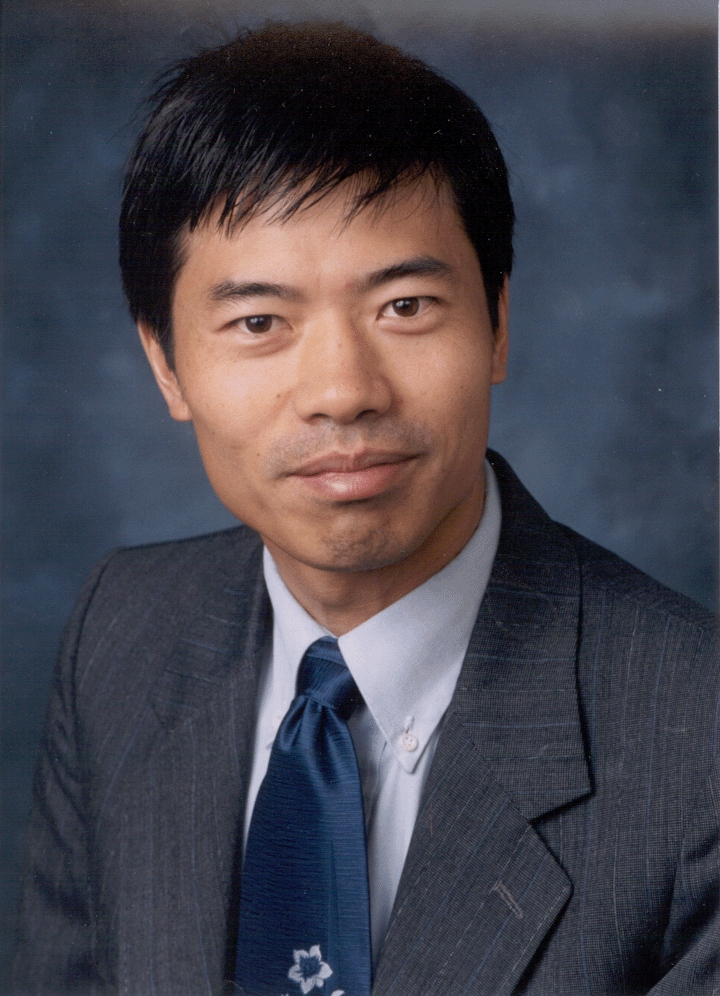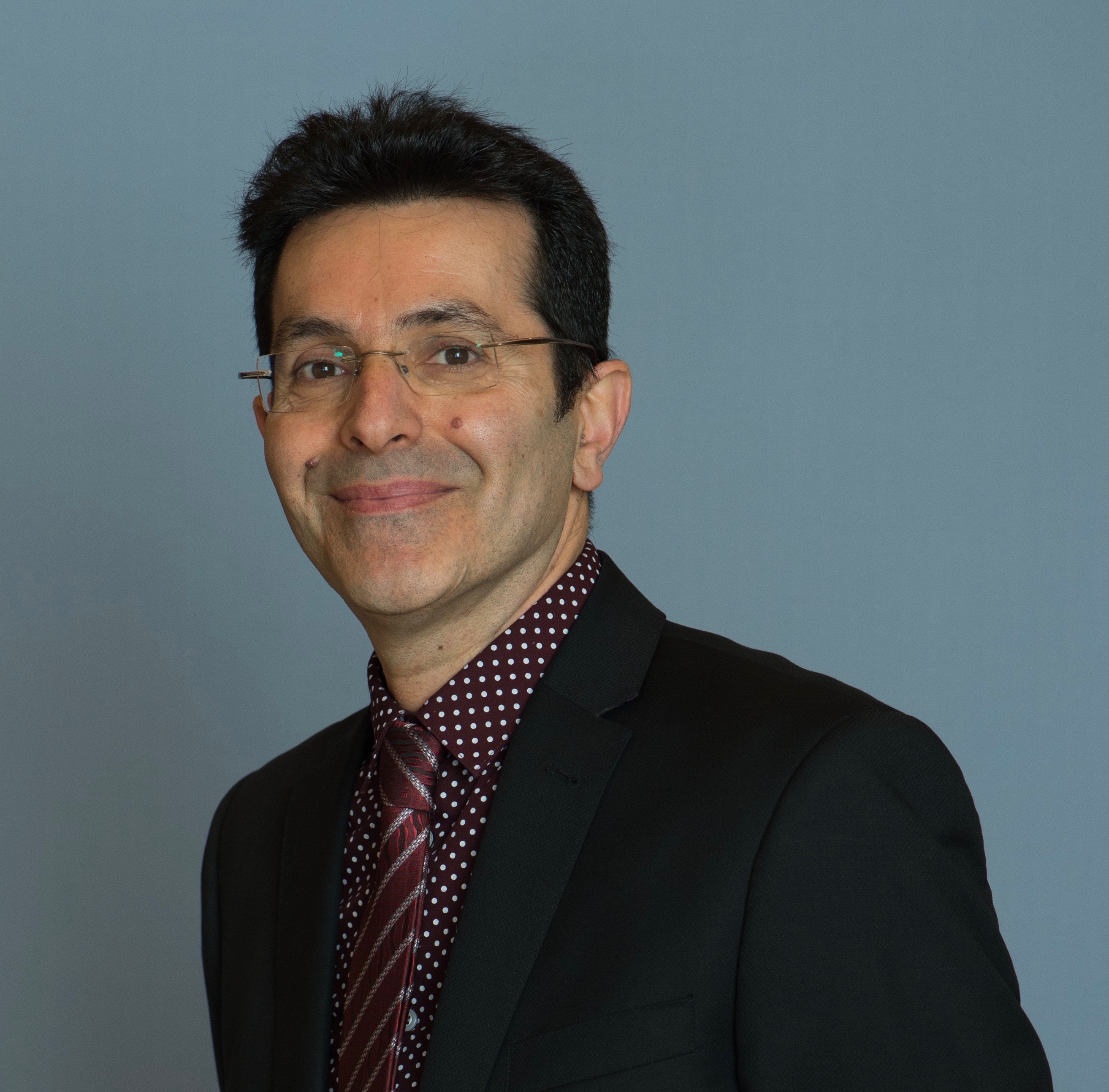Prof. Mengchu Zhou, Department of Electrical and Computer Engineering, New Jersey Institute of Technology, USA

Title:
Modeling, Scheduling and Real-time Control of Cluster Tools in Semiconductor Manufacturing
Abstract:
As robotic and mechatronic systems, cluster tools provide a flexible, reconfigurable, and efficient environment for semiconductor manufacturing. They become difficult to operate because of residency time constraints and process time variation. This talk addresses their real-time scheduling and control issues. A generic Petri net model is developed to model them. It describes the robot activity sequence with robot waits included. Hence, to operate a cluster tool is to determine robot wait times. A two-level operational architecture is proposed and discussed. It includes an off-line periodic scheduler and real-time controller. This proposed approach allows a cluster tool to adapt to activity time variation while operate at its highest throughput at the steady-state. New research topics related to multi-cluster tools and process module failures are revealed.
Brief Biography:
MengChu Zhou received his B.S. degree in Control Engineering from Nanjing University of Science and Technology, Nanjing, China in 1983, M.S. degree in Automatic Control from Beijing Institute of Technology, Beijing, China in 1986, and Ph. D. degree in Computer and Systems Engineering from Rensselaer Polytechnic Institute, Troy, NY in 1990. He joined New Jersey Institute of Technology (NJIT), Newark, NJ in 1990, and is now a Distinguished Professor of Electrical and Computer Engineering. His research interests are in Petri nets, Internet of Things, big data, web services, manufacturing, transportation, and energy systems. He has over 680 publications including 12 books, 360+ journal papers (260+ in IEEE Transactions), and 28 book-chapters. He is the founding Editor of IEEE Press Book Series on Systems Science and Engineering. He is a recipient of Humboldt Research Award for US Senior Scientists, Franklin V. Taylor Memorial Award and the Norbert Wiener Award from IEEE Systems, Man and Cybernetics Society. He has been among most highly cited scholars for years and ranked top one in the field of engineering worldwide in 2012 by Web of Science/Thomson Reuters. His Google citation count is well over 25, 000 and H-index is 71. He is a life member of Chinese Association for Science and Technology-USA and served as its President in 1999. He is a Fellow of IEEE, International Federation of Automatic Control (IFAC) and American Association for the Advancement of Science (AAAS).
TOP
Prof. Saeid Nahavandi, Institute for Intelligent Systems Research and Innovation Deakin University - Victoria, Australia

Title:
Human on the Loop Applications in Robotics and Haptics research
Abstract:
Robotics and Haptics constitute one of the emerging breakthroughs in science and technology, enabling their adoption in our businesses, economy, and society. Humans have benefited, and will continue to benefit, from such technologies capable of carrying out tasks in a variety of sectors. This talk will cover aspects of robotics and haptics research from manufacturing to medical applications and from fully automated to human in the loop providing true tele presence for military type counter IED applications. Future robotics and haptics systems will see a shift from human in the loop to human on the loop. Haptics and tele presence will be discussed and industry based projects will be used as case studies.
Brief Biography:
Saeid Nahavandi received his BSc (Hons), MSc and PhD in Control Engineering from Durham University, UK in 1985, 1986 and 1991 respectively. Saeid is an Alfred Deakin Professor, Pro Vice-Chancellor (Defence Technology) and the Director for the Institute for Intelligent Systems Research and Innovation at Deakin University in Australia. Professor Nahavandi is a Fellow member of IET, IEAust and Senior Member of IEEE and has published over 600 refereed papers and been awarded several competitive Australian Research Council (ARC) grants over the past 19 years. He received the Research collaboration / initiatives award from Japan (2000) and Prince & Princess of Wales Science Award in 1994. He won the title of Young Engineer of the Year Award in 1996 and holds four patents. In 2002 Professor Nahavandi served as a consultant to the Jet Propulsion Lab (NASA) during his visit to JPL Labs. In modelling and simulation of complex systems, he received awards from several organisations to focus on simulation based optimization of manufacturing processes, airport operations, logistics and distribution centres. He has carried out industry based research with several major international companies. Professor Nahavandi was General Co-Chair for the IEEE SMC 2011. He also holds the position of Co-Editor-in-Chief for IEEE Systems Journal, Associate Editor: IEEE/ASME Mechatronics, Associate Editor: IEEE TRANSACTIONS ON SYSTEMS, MAN, AND CYBERNETICS: SYSTEMS, Associate Editor: IEEE SMC Magazine.
TOP
Prof. Ryszard Kowalczyk, Swinburne University of Technology, Melbourne, Australia
Title:
Towards Intelligent Energy Management
Abstract:
The emergence of smart grids together with ubiquitous information and communication technologies promises new financial and environmental efficiencies in the energy market and the overall economy. One of the key assumptions underlying the vision of smart grids is that consumers will be empowered to actively participate in energy management from the demand side collectively with the providers and other operators from the supply side, resulting in more efficient supply-and-demand management of energy. Moreover they will also be able to participate in the energy market as local energy producers (i.e. prosumers) as well as form communities that produce and manage energy in micro-grids. It is envisaged that it will also allow the suppliers to more actively manage demand for the energy through the use of flexible tariffs and dynamic adjustments of the energy price in order to influence the consumer behaviour. However in order to realise the full potential of smart grids and achieve the envisioned efficiencies, new add-value software solutions (together with new economic and business models) are required to support and automate energy management that can deliver tangible benefits to both the consumers and suppliers. This talk will address research challenges and opportunities in developing smart energy management software solutions to provide decentralised decision support, optimisation and automation for collective energy generation, storage and consumption at the household, micro-grid and community levels enabled by intelligent agent technology. It will provide examples of selected research projects and initiatives at Swinburne including socio-technical-economic analysis & optimisation of renewable-based micro-grids, community-based management and control in self-sufficient rural micro-grids, decision support system for socio-economic-technical analysis and optimisation of renewable micro-grids, socially intelligent control of system demand based on local collaborative preferences, and market-oriented optimisation of embedded electricity networks in smart grids.
Brief Biography:
Prof. Ryszard Kowalczyk is Full Professor of Intelligent Systems, and leads the Intelligent Agent Technology and Smart Energy Management Research in the School of Software and Electrical Engineering (SSEE), Faculty of Science, Engineering and Technology (FSET), Swinburne University of Technology, Melbourne, Australia. Prior to joining the University in 2003, he worked with the Commonwealth Scientific and Industrial Research Organisation (CSIRO) and a number of corporate R&D centres of multinational companies in Australia and overseas. His research interests include intelligent systems, agent technology and collective intelligence, and their applications in building and managing open, large-scale, distributed systems such as smart infrastructure (smart electricity grid, smart cloud computing, smart services). Prof Kowalczyk has authored 4 patents and more than 200 articles in international journals and refereed conference proceedings. He has successfully led more than 30 R&D projects funded by competitive grants and industry in excess of $21 million, delivering significant research and commercial benefits. Prof Kowalczyk is Co-Editor-in-Chief of Transactions on Computational Collective Intelligence (Springer) and has served on a number of Editorial Boards of international journals. He has been instrumental in establishing Energy Management Research Centre in partnership with industry, and more recently he has been focusing on Smart Infrastructure research and commercialising Smart Cloud Broker technology. More information at http://www.ict.swin.edu.au/personal/rkowalczyk.
TOP
-->

